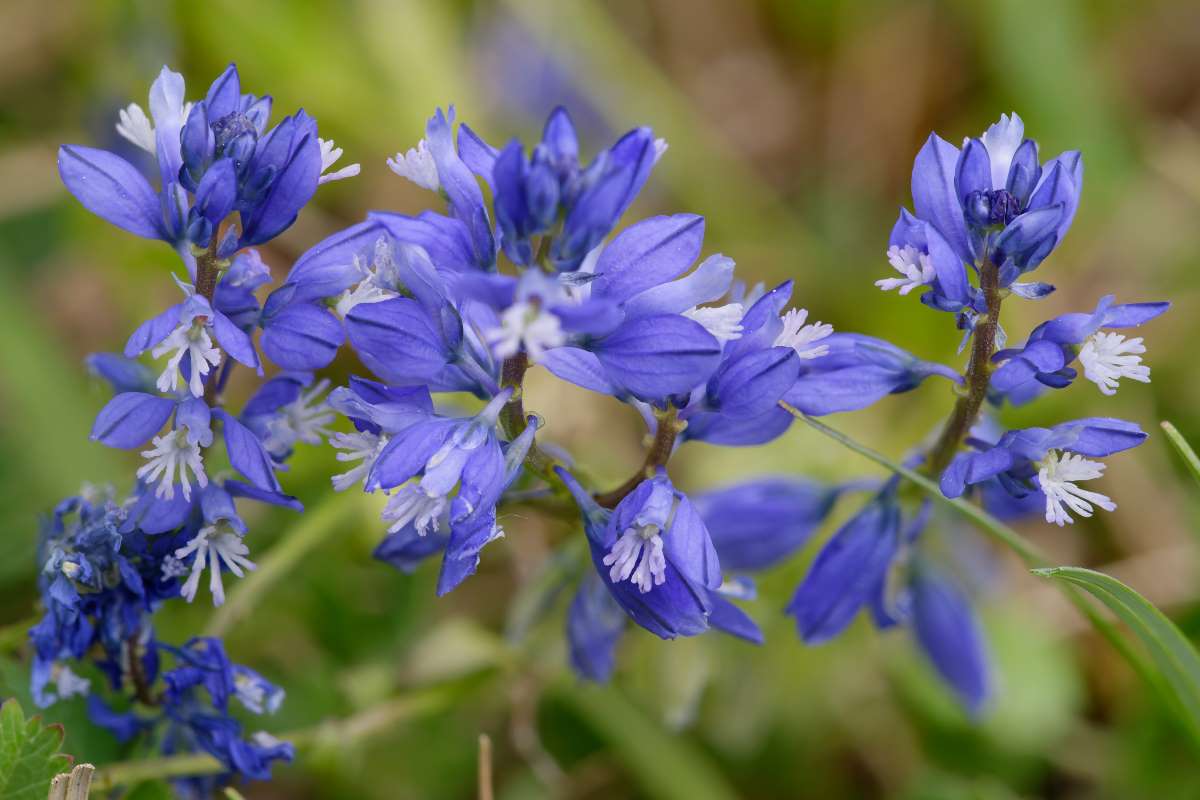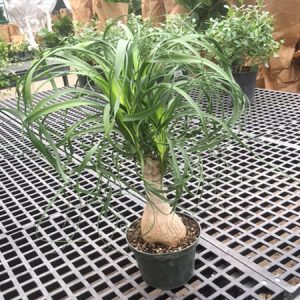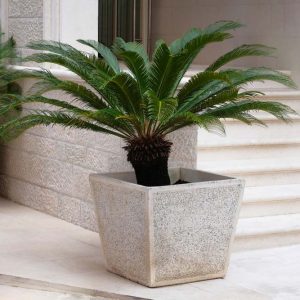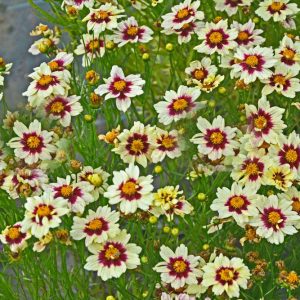Description
Polygala – Milkwort – Seneca – Snakeroot –
There are more than 500 species of annuals and evergreen perennial and some shrubs in this genus. They occur in a wide range of habitats worldwide, except New Zealand, Polynesia, and arctic region. They are grown for their terminal or axillary racemes of colorful, pea like flowers, produced in late spring and summer, or in some species in autumn, each flowers has 5 sepals, the inner two forming, broad, petal like “wings”, and 5 petals, the lowest forming a keel with a fringed apex, followed by a two chambered seed pod. The leaves are alternate, opposite, or whorled, linear to large oval with smooth edges and usually leathery. Grow hardy species in a woodland, rock garden, or shrub border.
Grow in light moderately fertile, humus rich, sharply drained soil in full sun or partial shade. Prune after flowering to keep habit.
P. calcarea – This prostrate, creeping mat forming, evergreen perennial from Western Europe grows 2-8″ tall and 8″ wide. It produces basal rosettes of obovate, leathery, mid green leaves, ½-1 ½” long. In late spring and early summer, trailing stems bear deep blue flowers, to 1/4″ long, with white-fringed lips, held in terminal racemes of 6-20, to 1 1/4″ long.
Zones 7-9





